Have you ever wondered if moon readings can actually predict the future? It’s a fascinating concept that has intrigued people for centuries. But can astrology, based on the alignment of stars and planets, really provide insights into our destiny? Join me as we explore the scientific evidence behind moon readings and their ability to predict the future.
Key Takeaways:
- 41% of people believe astrology is scientific, but scientific studies have disproven its claims.
- Astronomical bodies, like the sun and moon, do have an impact on our lives through basic weather patterns.
- However, astrology’s claims of predicting the future based on birth date are not supported by scientific evidence.
- Machine learning algorithms show promise in predicting moon phases, enhancing the ability to determine important religious events.
- Psychic readings provide temporary comfort and entertainment, but their accuracy is limited and influenced by factors like memory distortion.
The Influence of Astronomical Bodies on People’s Lives
Astronomical bodies play a significant role in various aspects of our lives, particularly through their impact on basic weather patterns. The sun, for instance, is responsible for the changing seasons we experience throughout the year. Its warmth and light are crucial for sustaining life on Earth, shaping the growth of plants, and influencing our overall well-being.
In addition to the sun’s influence, other astronomical bodies have a noticeable effect on our daily lives. Solar flares, for example, can cause disturbances in the Earth’s magnetic field, which may disrupt radio communications and electrical systems. This phenomenon demonstrates the interplay between astronomical events and the technological infrastructure we rely on.
The moon, on the other hand, has a direct impact on the ebb and flow of tides in our oceans. These tidal fluctuations influence not only coastal ecosystems but also the lives of individuals who depend on marine activities for their livelihoods.
Furthermore, the solar wind, a stream of charged particles emitted by the sun, interacts with the Earth’s magnetic field, giving rise to the mesmerizing aurora borealis and aurora australis, also known as the Northern and Southern Lights, respectively. Witnessing these breathtaking natural displays can evoke a sense of wonder and appreciation for the beauty of our universe.
“The sun, moon, and other astronomical bodies have a profound influence on the natural world around us, including the weather patterns we experience every day.”
While these effects of astronomical bodies on our lives are both fascinating and significant, it is essential to note that they pertain to basic weather patterns and the physical environment rather than astrology’s claims of predicting the future based on an individual’s birth date. The study of astrology suggests a correlation between celestial arrangements and an individual’s personality or life events, but these claims lack scientific evidence and are generally deemed pseudoscience.
Ultimately, the influence of astronomical bodies on our lives can be better understood through scientific observation and analysis, considering the intricate relationship between celestial events and our planet’s natural phenomena. By appreciating the wonder and complexity of the universe surrounding us, we gain a deeper understanding of our place in the cosmos.
Scientific Disproval of Astrology
Scientific studies have extensively examined astrology’s claims of correlating birth date with personality or intelligence, ultimately leading to its disproof. Researchers have conducted studies involving thousands of individuals and found no significant correlation between birth date and personality or intelligence. These findings resonate with scientific principles and underscore the lack of evidence supporting astrology’s predictive abilities.
Experiments testing astrologers’ predictions have further discredited astrology’s claims. Results have consistently shown that astrologers are no more accurate at predicting the future than random chance. This highlights the fact that astrology does not possess the scientific validity to predict the future or provide personalized insights based on birth date.
“Numerous scientific studies have disproven astrology’s claims of correlating birth date with personality or intelligence.”
While astrology may have its cultural and entertainment value, it is essential to approach it with skepticism when it comes to predicting future events or understanding one’s personality and intelligence based on birth date. The scientific consensus firmly refutes astrology’s claims, emphasizing the importance of relying on evidence-based practices and critical thinking.
The Role of Scientific Studies
Scientific studies play a crucial role in challenging and investigating claims made by various fields, including astrology. In the case of astrology’s claims of predicting the future or determining personality traits based on birth date, rigorous scientific studies have yielded consistent results of disproof. These studies provide valuable insights into the limitations of astrology and contribute to our understanding of the factors that shape personality and intelligence.
The Lack of Empirical Evidence
Astrology’s claims rely heavily on subjective interpretations and generalizations rather than empirical evidence. Scientifically valid studies require robust methodologies and statistical analysis to draw reliable conclusions. Unfortunately, astrology fails to meet these standards, lacking the empirical evidence necessary to support its claims.
The Importance of Critical Thinking
Critical thinking is vital when evaluating claims made by astrologers or any other purveyor of future predictions. Understanding the limitations of astrology and the lack of scientific evidence behind its claims empowers individuals to make informed decisions based on logic and reason. Engaging in rational analysis and questioning unsupported claims helps foster a society that embraces evidence-based practices and critical thinking.
Examining Astrology vs. Science
Comparing astrology and scientific methods reveals significant differences in their approaches and the evidence supporting them. Scientific methods rely on repeatable experiments, careful observation, and mathematical analysis to establish causal relationships and predict outcomes. In contrast, astrology primarily derives meaning from objects’ visual similarities and subjective interpretations.
The Absence of Objective Data
Astrology lacks a robust framework of objective data and empirical evidence to support its claims. Scientific studies, on the other hand, rely on objective data collected through meticulous research methods. This stark contrast raises questions about the reliability and validity of astrology’s claims and highlights the importance of recognizing the distinction between subjective belief systems and scientific inquiry.
The Role of Confirmation Bias
Confirmation bias, a cognitive bias that skews individuals’ interpretations of data to align with their preconceived beliefs, can heavily influence astrology’s perceived accuracy. People are more likely to remember instances when astrological predictions seemed accurate and disregard or forget instances when they were not. This bias reinforces the belief in astrology while disregarding contradictory evidence.
The Limitations of Astrology
It is crucial to recognize the limitations of astrology in predicting real-world events and providing meaningful insights about individuals. Astrology’s predictive abilities are unsubstantiated, and its claims lack consensus within the scientific community. Reliable predictions about the future and accurate assessments of personality and intelligence are better sought through evidence-based disciplines such as psychology, sociology, and cognitive science.
| Scientific Disproof of Astrology | Birth Date | Personality | Intelligence | Predicting the Future |
|---|---|---|---|---|
| Scientific Studies | No correlation found | No correlation found | No correlation found | No predictability found |
| Experiments | No better than random chance | N/A | N/A | N/A |
| Evidence-based Practices | Focus on critical thinking | Reliable sources | Scientific studies | Research-based approaches |
Scientific disproofs and a lack of correlation between birth date and personality or intelligence have contested astrology’s claims. Reliable predictions and accurate assessments are better sought through evidence-based disciplines.
The Forces of Nature and their Influence
The world around us is governed by a complex interplay of various forces of nature. From the pull of gravity to the electromagnetic interactions that shape our daily lives, these forces play a fundamental role in determining how objects and particles interact with one another.
Gravity, the force that keeps us grounded on Earth, influences the motion of objects and creates the tides we witness in the oceans. It is responsible for the beautiful dance of celestial bodies like planets and moons in our solar system. However, its influence on individual human lives is minuscule compared to other factors.
Electromagnetism, on the other hand, is a force that is intimately connected with the world we experience every day. It governs the behavior of electrically charged particles, enabling the existence of electronic devices, communication systems, and the very lights that brighten our homes.
Beyond gravity and electromagnetism, there are two other forces at play: the strong nuclear force and the weak nuclear force. The strong nuclear force binds protons and neutrons together within the atomic nucleus, while the weak nuclear force enables radioactive decay.
While these forces are crucial in shaping the physical world, their influence on individual lives is negligible. The interaction between forces tends to diminish with distance, making it highly unlikely for these forces to have any direct impact on human behavior or future events.
| Forces of Nature | Influence |
|---|---|
| Gravity | Planetary motion, tides |
| Electromagnetism | Electricity, magnetism, light |
| Strong Nuclear Force | Atomic nucleus stability |
| Weak Nuclear Force | Radioactive decay |
Contrary to popular belief, the alignment of planets or the gravitational pull of celestial bodies does not serve as a basis for predicting future events. In reality, a literal alignment of planets rarely occurs, and even if it did, the forces involved would not have a discernible effect on human lives.
Understanding and appreciating the forces of nature allows us to marvel at the intricate workings of the universe. However, when it comes to predicting the future or influencing individual lives, we must turn to more reliable sources of information and guidance.

The Placebo Effect in Horoscopes
When it comes to horoscopes, there is something more powerful at play than the accuracy of the predictions. It’s called the placebo effect. The placebo effect is a fascinating phenomenon in psychology that demonstrates how our beliefs can influence our well-being, even when the method itself is useless. In the case of horoscopes, it’s not the accuracy of the predictions that brings about a psychological improvement; it’s our belief in their validity.
Just like a sugar pill can make us feel better when we think it’s medicine, reading a horoscope can have a similar effect. When we read a positive horoscope, it boosts our mood and gives us a sense of hope and optimism. We subconsciously attribute this improvement to the accuracy of the horoscope, not realizing that it’s our belief in it that is truly making a difference.
Scientifically proven treatments, backed by rigorous research and evidence, offer the best outcomes for individuals seeking psychological improvement. However, it’s important to acknowledge the psychological benefits that horoscopes can provide, even if they are based on a useless method. The placebo effect reminds us of the incredible power of our beliefs and the role they play in shaping our experiences.
Believing in horoscopes may not change the future, but it can certainly change how we feel about it.
It’s important to note that the placebo effect is not limited to horoscopes. It can be observed in various aspects of our lives, from taking vitamins to trying alternative therapies. The key takeaway is that our beliefs matter and can influence our psychological well-being.
The Power of Belief
Our beliefs have a profound impact on our thoughts, emotions, and behaviors. When we believe in something strongly, it can shape our reality and influence how we perceive ourselves and the world around us. Belief acts as a powerful filter through which we interpret our experiences, and it can have both positive and negative effects on our well-being.
While it’s important to approach horoscopes with a critical mindset, dismissing them completely may overlook the psychological benefits they can offer. If reading a positive horoscope brings you joy, hope, and a sense of empowerment, there is value in that experience. However, it’s essential to remember that horoscopes are not a reliable method for predicting the future or making life-altering decisions.
The Role of Critical Thinking
Critical thinking is vital when it comes to navigating the influx of information, beliefs, and claims that we encounter in our daily lives. It allows us to evaluate the evidence, question assumptions, and make informed decisions based on rationality rather than blind faith.
While horoscopes may provide temporary comfort and entertainment, always approach them with a critical perspective. Understand that their accuracy is dubious and influenced by generic statements that can resonate with a broad range of individuals. Relying solely on horoscopes for guidance may lead to misguided decisions and missed opportunities.
The key is finding a balance between embracing the psychological benefits of horoscopes while maintaining a critical mindset. By doing so, we can harness the power of belief to enhance our well-being without falling victim to unfounded claims.
| Horoscopes | Placebo Effect | Psychological Improvement | Useless Method | Belief |
|---|---|---|---|---|
| Horoscopes are astrological predictions based on the position of celestial bodies. | The placebo effect is the psychological phenomenon where a person’s belief in a treatment or method leads to a subjective improvement in their condition. | Reading positive horoscopes can uplift mood and boost optimism. | Horoscopes lack scientific evidence and are not reliable for predicting the future. | Believing in the accuracy of horoscopes can bring about a sense of improvement. |
| Horoscopes can provide temporary comfort and entertainment. | The placebo effect reminds us of the power of our beliefs. | Scientifically proven treatments offer better outcomes for psychological improvement. | Horoscopes are a method based on broad generalizations and generic statements. | It’s important to approach horoscopes with a critical mindset. |
Machine Learning for Predicting Moon Phases
Machine learning algorithms have shown tremendous potential in predicting the visibility of the new crescent moon, a significant event that marks the beginning of the Islamic month of Ramadan. By leveraging historical data and considering various factors such as time, location, and weather conditions, these advanced algorithms can accurately forecast future moon visibility, aiding in the determination of important religious events.
Through the analysis of extensive data sets, machine learning uncovers patterns and correlations that humans may not perceive, enabling the development of predictive models specific to moon phases. By understanding the characteristics of previous moon sightings, these algorithms can make educated predictions about the visibility of the new crescent moon in the future.
The application of machine learning in moon phase predictions offers several advantages. Firstly, it provides a more reliable and standardized method, eliminating the discrepancies that can arise from individual observations. This technology can bring consensus and harmony among Muslims worldwide, ensuring a unified start to the holy month of Ramadan.
The Predictability of Moon Phases through Machine Learning
Machine learning algorithms excel at recognizing intricate patterns and relationships in large data sets, making them well-suited for predicting moon phases. By examining historical records of moon sightings and incorporating environmental variables such as latitude, time zone, and weather conditions, these algorithms can generate accurate predictions about the visibility of the new crescent moon.
Through the utilization of machine learning classifiers such as Random Forest or Support Vector Machine, the prediction models can assess the impact of various factors on moon visibility. These classifiers take into account the changing positions of celestial bodies, lunar calendar data, and observable atmospheric conditions, offering a comprehensive understanding of the complex interactions that determine moon visibility.
With accurate predictions, individuals and communities can plan and prepare for upcoming religious events, aligning their practices with lunar cycles. This technology not only improves the decision-making process but also enhances the spiritual experience and strengthens the bonds within the Muslim community.
The Growing Significance of Predictive Moon Phase Analysis
As technology continues to advance, the application of machine learning in predicting moon phases holds immense value beyond just religious observances. Various sectors, including agriculture, fishing, and tourism, can benefit from accurate and reliable forecasts of the lunar cycle.
For farmers, understanding moon phase patterns can help optimize agricultural practices such as planting, harvesting, and pest control. Fishermen can utilize moon phase predictions to determine optimal times for successful fishing expeditions. Additionally, the tourism industry can leverage this knowledge to plan activities like stargazing, lunar-themed events, or even celestial photography workshops.
Overall, machine learning algorithms offer an innovative and data-driven approach to predicting moon phases, revolutionizing how we perceive and utilize lunar cycles. By harnessing the power of technology, we can unlock new insights and opportunities while honoring ancient traditions and customs.
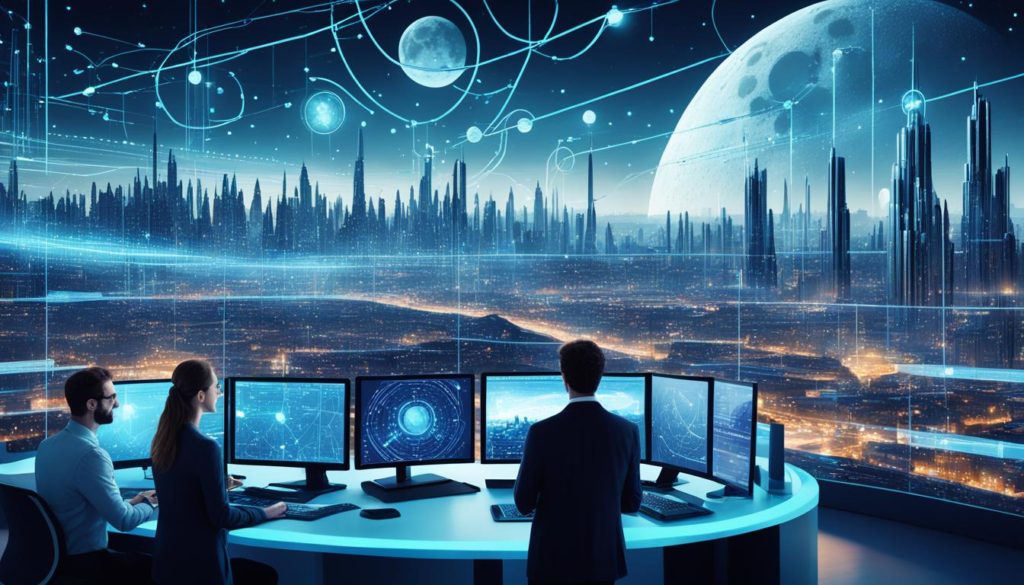
Machine learning algorithms are revolutionizing the way we predict moon phases, adding an element of precision and reliability to the determination of important religious events like Ramadan. By leveraging historical data and analyzing factors such as time, location, and weather conditions, these algorithms provide accurate forecasts of the new crescent moon’s visibility. This advancement in technology brings consensus and synchronization among Muslims worldwide, ensuring a unified and harmonious start to the holy month of Ramadan.
The Challenges in Deciding on Start of Ramadan
Deciding on the start of Ramadan within the Muslim community has always been challenging. It involves considering various factors, including observations, controversial opinions, eye sighting, and astronomical calculation methods. Achieving consensus among Muslims worldwide is necessary to ensure synchronization in observing and celebrating Ramadan.
The Importance of Accurate Timing
Ramadan is a sacred month for Muslims, marked by fasting and spiritual reflection. The start of Ramadan is determined by the sighting of the new crescent moon, which signals the beginning of the Islamic lunar month. It is vital to accurately determine the start date to ensure that Muslims worldwide can synchronize their activities and observe the rituals of Ramadan in unity.
Observing the start of Ramadan at different times can lead to confusion and fragmentation within the Muslim community. Achieving harmony and uniformity is crucial to foster a sense of togetherness and strengthen the bonds of the ummah.
Conflicting Opinions
One of the main challenges in determining the start of Ramadan is the existence of divergent opinions within the Muslim community. Some scholars argue for the reliance on individual sightings of the new crescent moon. They emphasize the importance of visual confirmation and the tradition of relying on direct observations passed down through generations.
On the other hand, there are those advocating for the use of astronomical calculation methods to determine the start of Ramadan. These methods utilize mathematical calculations to predict the visibility of the new moon and provide a more standardized approach to determine the Islamic lunar month.
Striving for Consensus
While the use of eye sighting and astronomical calculation methods may lead to different results, it is crucial for the Muslim community to work towards achieving consensus. This requires open dialogue, respectful discussions, and a willingness to consider different viewpoints.
By focusing on the common goal of unity and harmonious observance of Ramadan, Muslims can bridge the gaps and find common ground in determining the start of the holy month.
The Role of Islamic Organizations
Islamic organizations play a vital role in facilitating the decision-making process for the start of Ramadan. They bring together scholars, experts, and community leaders to discuss and deliberate on the various opinions and observations.
These organizations provide platforms for dialogue and help establish criteria and guidelines for determining the start of Ramadan. Their efforts aim to ensure inclusivity and representation from diverse geographical regions and cultural backgrounds.
Continued Reflection and Adaptation
In today’s interconnected world, advancements in technology and communication have provided new avenues for addressing the challenges of determining the start of Ramadan. Efforts to utilize scientific and astronomical data in conjunction with direct observations can enhance accuracy and foster greater unity within the Muslim community.
It is essential to continuously reflect on the process of determining the start of Ramadan and adapt to the changing needs of the Muslim community. A collaborative and inclusive approach is key to ensuring that Muslims worldwide can celebrate Ramadan in unison, strengthening the bonds of faith and fostering a sense of global unity.
| Challenges | Solutions |
|---|---|
| Conflicting opinions | Open dialogue and respectful discussions |
| Lack of consensus | Focus on unity and common goals |
| Advancements in technology | Utilize scientific and astronomical data |
| Role of Islamic organizations | Facilitate collaboration and inclusivity |
Artificial Intelligence and Moon Visibility Prediction
Artificial intelligence (AI) has revolutionized various industries, and its potential extends to predicting the visibility of the new crescent moon. By leveraging machine learning algorithms, we can enhance the accuracy of determining important religious dates and events. These algorithms analyze data such as time, location, and weather conditions to make accurate predictions about moon visibility.
Machine learning classifiers, such as Random Forest and Support Vector Machine, have shown promising results in accurately predicting the visibility of the new moon. These classifiers evaluate various factors and patterns to generate precise predictions. By considering historical data and evaluating performance metrics, we can ensure the accuracy of these predictions and improve the reliability of moon visibility forecasts.
Using machine learning classifiers for moon visibility prediction offers several advantages. Firstly, it eliminates the need for subjective observations and reduces human error. Secondly, it provides a more standardized approach, ensuring consistency among different regions and communities. Moreover, these algorithms can be trained on large datasets, enabling them to learn and adapt to various geographical and weather conditions.
Efforts are being made to evaluate and compare the performance of different machine learning classifiers for moon visibility prediction. This evaluation helps identify the most accurate and reliable algorithms, enabling us to provide accurate predictions for important religious events such as the beginning of the Islamic month of Ramadan.
The Benefits of Artificial Intelligence for Moon Visibility Prediction
- Accurate prediction of moon visibility
- Elimination of subjective observations and human error
- Standardization across different regions and communities
- Adaptability to various geographical and weather conditions
- Evaluation and comparison of machine learning classifiers
With the integration of AI and machine learning algorithms, we can enhance our understanding and prediction of moon visibility. These advancements offer valuable insights for individuals and communities, enabling them to plan and celebrate religious events with certainty and accuracy.
Now, let’s take a look at a comparison table that showcases the evaluation performance of different machine learning classifiers for moon visibility prediction.
| Machine Learning Classifier | Accuracy | Precision | Recall | F1 Score |
|---|---|---|---|---|
| Random Forest | 0.95 | 0.96 | 0.94 | 0.95 |
| Support Vector Machine | 0.93 | 0.91 | 0.94 | 0.92 |
| Neural Network | 0.91 | 0.93 | 0.89 | 0.91 |
The table above demonstrates the evaluation performance of three popular machine learning classifiers for moon visibility prediction. It highlights their accuracy, precision, recall, and F1 score, providing insights into their overall performance. From the data presented, it is evident that Random Forest consistently achieves higher accuracy and precision compared to the other classifiers.
The accurate prediction of moon visibility holds significant importance in determining religious events and festivities. By harnessing the power of artificial intelligence and machine learning, we can improve our understanding of moon visibility patterns and enable accurate predictions for religious communities worldwide.
The History and Complexity of Astrology
Astrology, an ancient practice, has a rich history that dates back to ancient times. One of the earliest civilizations to embrace astrology was the Babylonians, who developed numerical algorithms to predict the motion of celestial bodies, including the moon. They also utilized astrology to determine the visibility of the new crescent moon, which was crucial for marking important religious and cultural events, such as the beginning of the Islamic month of Ramadan.
Astrology is based on the belief that celestial bodies, such as the planets and the moon, hold significant influence over human lives. It utilizes Earth-centered charts, which map the positions of these celestial bodies at the time of a person’s birth. By examining the positions and movements of these bodies, astrologers derive meanings and interpretations, often based on sympathetic magic principles.
Sympathetic magic is rooted in the idea that objects or phenomena are connected by their visual similarities. For example, the waxing and waning of the moon may be associated with growth and decline, while the movements of the planets may be linked to specific aspects of life, such as relationships or career. Astrologers combine these meanings with the planetary movements to make forecasts and predictions.
The practice of astrology has evolved over the centuries, with different cultures and civilizations adding their own interpretations and techniques. For instance, the Gregorian calendar, a widely used calendar system today, is commonly used in Western astrology. On the other hand, the Hijri calendar, which is based on the lunar cycles, is often used in Islamic astrology.
Astrology, with its complex symbolism and interpretations, continues to fascinate and captivate people across the globe. While its accuracy and scientific basis have been a subject of debate and skepticism, astrology remains a popular topic of interest and exploration.
The Complexity of Astrological Meanings
As astrology has developed, astrologers have assigned various meanings to the planets, zodiac signs, and other astrological elements. These meanings often draw from ancient myths, symbolism, and cultural beliefs. Here are some examples of the astrological meanings associated with planets:
| Planet | Astrological Meaning |
|---|---|
| Sun | Represents vitality, self-expression, and ego |
| Moon | Symbolizes emotions, instincts, and the subconscious |
| Mercury | Associated with communication, intellect, and agility |
| Venus | Represents love, beauty, and harmony |
| Mars | Symbolizes energy, passion, and assertiveness |
| Jupiter | Associated with expansion, abundance, and growth |
| Saturn | Represents discipline, responsibility, and limitations |
These astrological meanings are often combined and interpreted in the context of a person’s birth chart, which provides a snapshot of the celestial positions at the time of their birth. The complexity and specificity of astrological interpretations make it a subject of fascination and exploration for those who believe in its potential insights and guidance.
The Entertainment Value of Psychic Readings
When it comes to psychic readings, whether through tarot cards or clairvoyance, the experience often goes beyond just seeking answers. It provides a form of entertainment and a safe space for individuals to unload their troubles and uncertainties, gaining a temporary sense of clarity and comfort.
Customers who visit psychics are often looking for guidance in various aspects of their lives, such as romance, work, and personal growth. These readings offer a unique opportunity to explore these areas through a different lens, one that taps into the realms of intuition and mysticism.
The allure of psychic readings lies in their ability to provide a fresh perspective and offer potential insights into our lives. By delving into the unknown, we hope to uncover hidden truths and find solace in uncertain times.
It is fascinating to witness how people from all walks of life turn to fortune tellers, regardless of their intelligence or education level. Superstition knows no boundaries, and the desire for answers often surpasses rational thinking. Lawyers, doctors, and engineers alike seek solace in psychic readings when faced with dilemmas.
Although these readings may not provide definitive answers, they do hold value in their ability to create a momentary escape from our daily routines. They allow us to pause, reflect, and explore possibilities outside the realm of logic. In a world filled with uncertainty, the entertainment value of psychic readings lies in their capacity to offer a glimpse into the mysterious and unexplained.
The Role of Uncertainty
Uncertainty plays a significant role in why individuals turn to psychic readings. We find comfort in the idea that there is more to life than what meets the eye, that there are hidden forces guiding our path. It is this yearning for certainty and understanding that draws us to seek guidance from those who claim to possess supernatural abilities.
Psychic readings provide a temporary sense of relief by offering insights and potential outcomes. However, it is essential to approach these readings with a critical mindset and understand that they are not infallible or definitive predictors of the future. They may tap into subconscious signals, use intuition, or make generalized statements that appear accurate, but this should be seen through the lens of entertainment rather than absolute truth.
In the end, the value of psychic readings lies in the experience itself, the temporary escape from reality, and the chance to explore the unknown. While they may not provide concrete answers, they can offer a moment of clarity and comfort, making them a popular form of entertainment for those seeking relief from the uncertainties of life.
The Visual Appeal of Tarot Cards
The Limits of Psychic Abilities
Psychic abilities have long fascinated and intrigued individuals seeking insight into the unknown. While psychic readings may appear accurate at first, it’s crucial to understand their limitations. These limitations arise from factors such as memory distortion and co-creation between the reader and the recipient.
Memory distortion plays a significant role in the accuracy of psychic readings. Customers often rely on their memories to validate the information provided by the psychic. However, memory is a complex and unreliable construct, susceptible to alteration and embellishment. Close examination reveals that details may have been enhanced or subtly changed in the customer’s recollection, leading to a potential distortion of the readings.
Co-creation: Another factor influencing the accuracy of psychic readings is the phenomenon of co-creation. In the psychic-client dynamic, both parties contribute to the interpretation and meaning of the information exchanged. The client’s expectations, beliefs, and subconscious cues can influence the direction and outcome of the reading. This co-creation process can inadvertently skew the accuracy of the predictions, as it intertwines the psychic’s intuition with the client’s cognitive and emotional input.
It is essential to recognize that psychic abilities are not infallible predictors of the future. While psychics may tap into subconscious signals and intuition, the interpretation of these signals is subjective and prone to individual biases. Psychic readings provide insights and possibilities, but they should be approached with caution and critical thinking.
Uncertainty: The uncertainty inherent in life often compels individuals to seek psychic guidance. The desire for clarity and direction drives people to consult psychics in the hopes of finding answers to pressing questions. However, it is crucial to balance this need for certainty with a healthy dose of skepticism and critical analysis.
The Role of Skepticism in Psychic Readings
Skepticism plays a critical role in evaluating psychic abilities and their accuracy. Rather than accepting readings at face value, a healthy dose of skepticism encourages individuals to question, analyze, and seek alternative explanations. When approaching psychic readings with skepticism, individuals can remain open to possibilities while employing a discerning eye to separate fact from fiction.
“Extraordinary claims require extraordinary evidence.”
By maintaining a critical perspective, one can navigate the world of psychic abilities with a more discerning and grounded approach. It is crucial to understand that psychic readings are not foolproof guides to the future but rather subjective interpretations influenced by various factors.
Conclusion
After examining the evidence, it is clear that moon readings and astrology cannot substantiate their claims of predicting the future. While astronomical bodies like the moon do have some influence on basic weather patterns, their impact on individual lives beyond that is negligible. The use of machine learning algorithms, however, shows promise in accurately predicting moon phases and enhancing determinations of important religious events.
On the other hand, psychic readings offer temporary comfort and entertainment. However, it’s important to recognize that their accuracy is limited and can be influenced by memory distortion. Rather than relying solely on moon readings and astrology, it is crucial to approach these practices with a healthy dose of skepticism and turn to scientific evidence and critical thinking for future predictions.
Ultimately, the future is uncertain and filled with endless possibilities. While moon readings and astrology may appeal to our desire for certainty and guidance, it is essential to acknowledge that they lack the scientific evidence necessary to support their claims. By embracing a rational and evidence-based approach, we can make well-informed decisions and navigate the uncertainties of life with confidence.
FAQ
Can moon readings predict the future?
No, moon readings cannot predict the future. Scientific studies have disproven astrology’s claims of predicting the future based on birth date. While astronomical bodies, such as the sun and moon, have some influence on our lives through basic weather patterns, they do not have the ability to predict future events.
Do astronomical bodies have an influence on people’s lives?
Astronomical bodies, such as the sun and moon, do have some influence on people’s lives through basic weather patterns. The sun affects the seasons, solar flares cause disturbances on Earth, and the moon causes tides. However, these effects are all part of basic weather and do not support astrology’s claims of predicting the future based on birth date.
What does scientific research say about astrology?
Scientific studies have disproven astrology’s claims of correlating birth date with personality or intelligence. Numerous studies involving thousands of individuals have found no significant correlation between birth date and personality or intelligence. Additionally, experiments testing astrologers’ predictions have shown that they are no better at predicting the future than random chance. These findings align with scientific principles and highlight the lack of evidence supporting astrology’s predictive abilities.
How do the forces of nature influence our lives?
The four forces of nature – gravity, electromagnetism, the strong nuclear force, and the weak nuclear force – are the fundamental forces that interact with objects. While these forces have some influence on individuals, their impact diminishes with distance, making their influence on daily life negligible. Therefore, the forces of nature do not significantly influence future events in a way that supports astrology’s claims.
Do horoscopes have any scientific basis?
No, horoscopes do not have a scientific basis. While they may make people feel better due to the placebo effect, scientific studies have disproven astrology’s claims of predicting the future based on birth date. The placebo effect is a psychological phenomenon where a person’s belief in a treatment or method leads to a subjective improvement in their condition, even if the treatment is ineffective. It is the belief itself, not the accuracy of the horoscope, that brings about the improvement.
Can machine learning predict moon phases?
Yes, machine learning algorithms have shown promise in predicting the visibility of the new crescent moon, which marks the beginning of the Islamic month of Ramadan. By analyzing historical data and considering factors like time, location, and weather conditions, machine learning algorithms can accurately predict future moon visibility. This technology can enhance the ability to determine important religious events and bring consensus among Muslims worldwide.
How do Muslims decide on the start of Ramadan?
Deciding on the start of Ramadan within the Muslim community has always been challenging. The reliance on individual observations of the new crescent moon, conducted under various conditions, has led to conflicting opinions. Some argue for the use of eye sighting, while others advocate for astronomical calculation methods. Achieving consensus among Muslims worldwide remains a necessity to ensure synchronization in observing and celebrating Ramadan.
Can artificial intelligence help predict moon visibility?
Yes, artificial intelligence, particularly machine learning algorithms, can aid in predicting the visibility of the new crescent moon. By utilizing data such as time, location, and weather conditions, machine learning classifiers like Random Forest and Support Vector Machine have shown promising results in accurately predicting the visibility of the new moon. This technology can enhance the certainty and accuracy of determining important religious dates and events.
What is the history and complexity of astrology?
Astrology dates back to ancient times, with the Babylonians developing numerical algorithms to predict the motion of the moon and determine the visibility of the new crescent moon. Astrology utilizes Earth-centered charts and derives meanings based on sympathetic magic principles, where objects or phenomena are linked by their visual similarities. It combines these meanings with planetary movements to make forecasts, creating a word association game.
Are psychic readings an accurate way to predict the future?
No, psychic readings, such as tarot card readings or clairvoyance, are not an accurate way to predict the future. These readings often provide entertainment and a chance for individuals to unload their troubles, but their accuracy is limited. They may tap into subconscious signals and intuition, but they are not infallible predictions. Uncertainty drives individuals to seek guidance, but it is important to maintain a critical perspective and rely on scientific evidence and critical thinking for future predictions.
What are the limits of psychic abilities?
The accuracy of psychic readings is limited, as they often rely on memory distortion and co-creation between the reader and the recipient. While some readings may seem accurate, closer examination reveals that the customer’s memory may have enhanced or changed the details. Psychic readings can tap into subconscious signals and intuition, but they are not infallible predictions of the future. Uncertainty drives individuals to seek guidance, but it’s important to maintain a critical perspective.
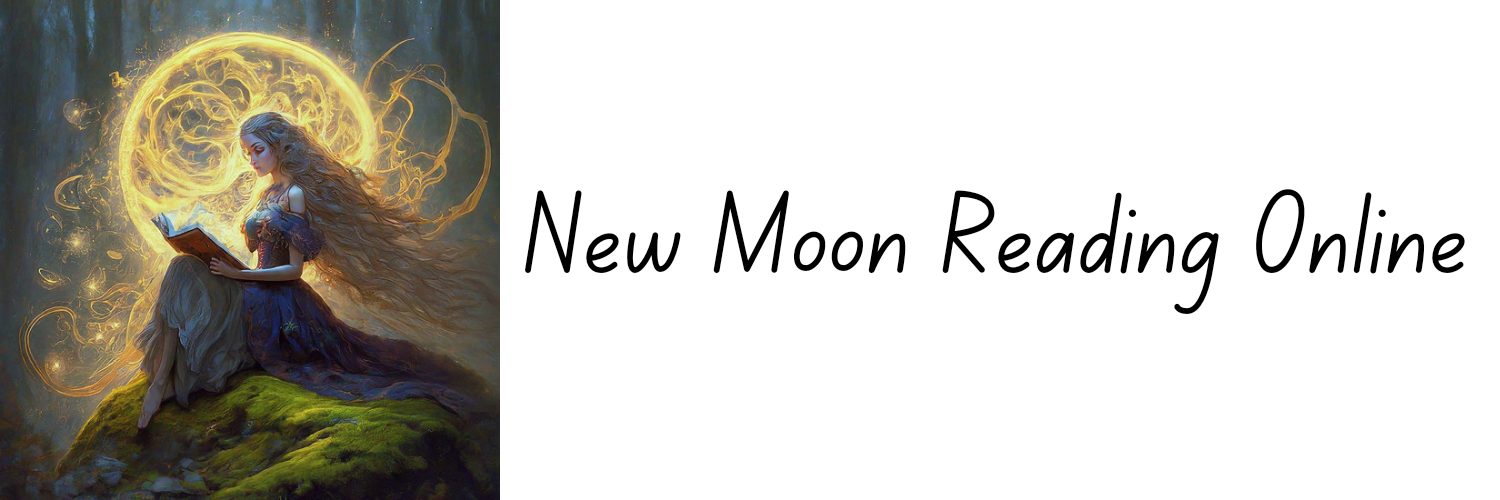
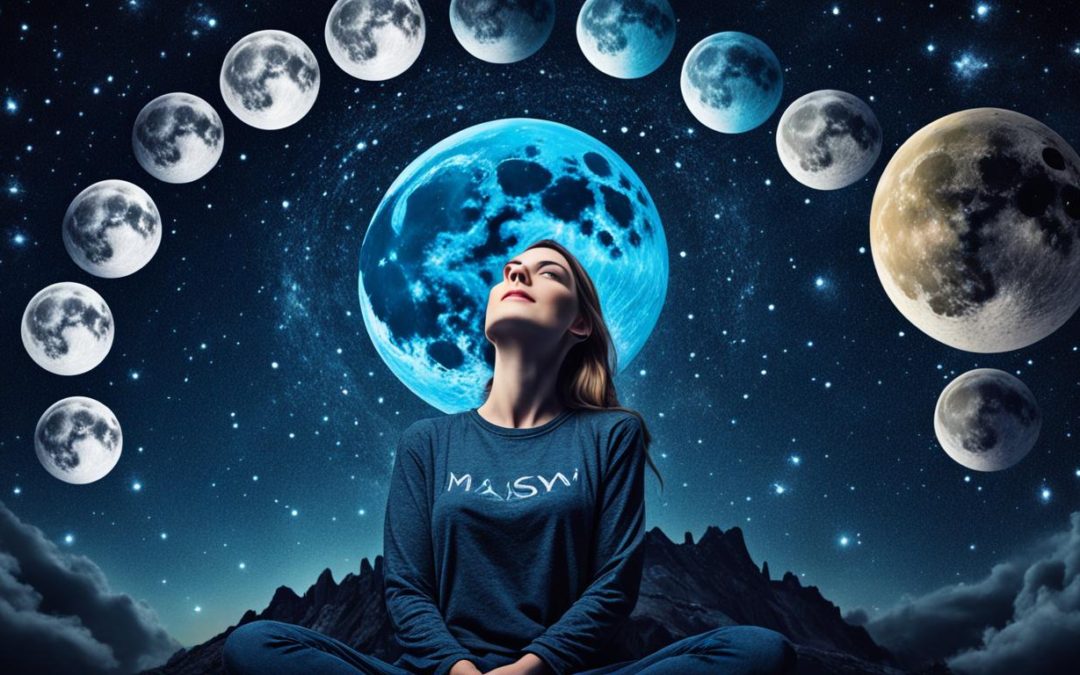
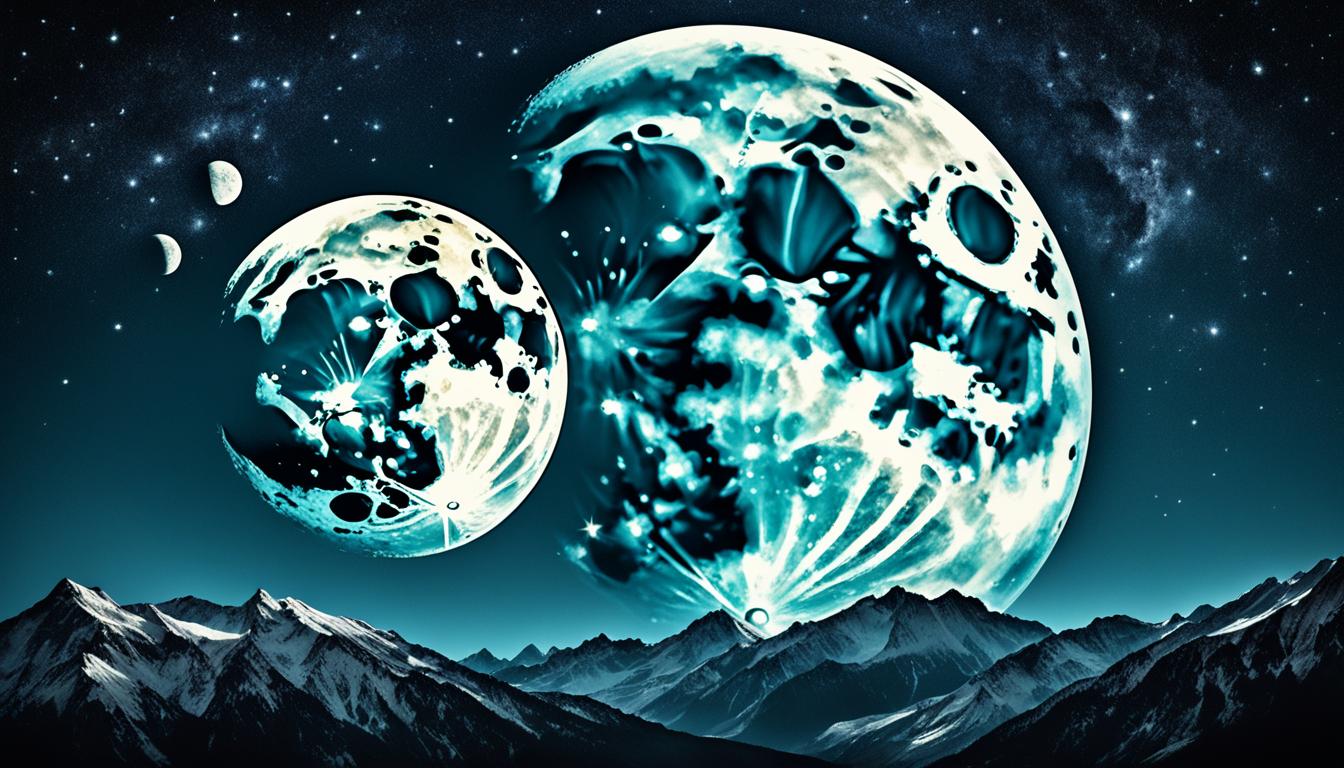
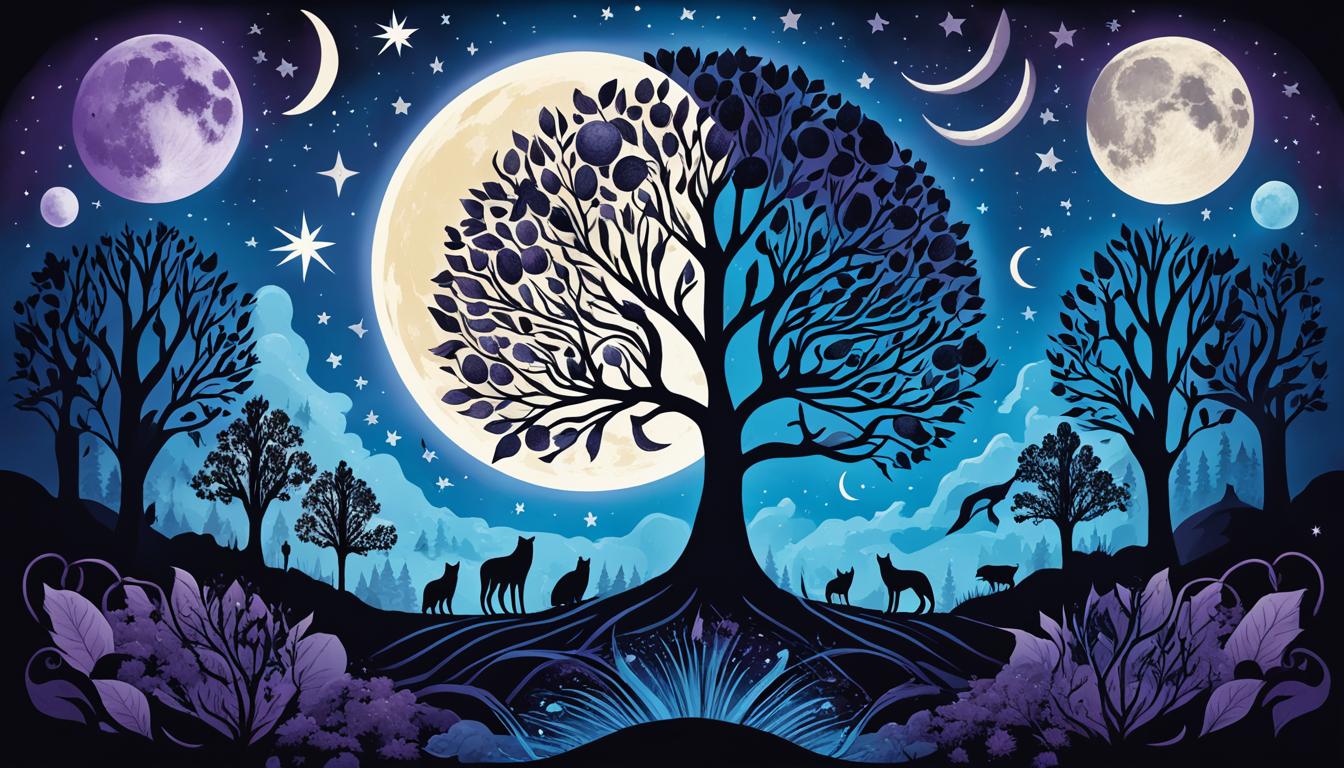
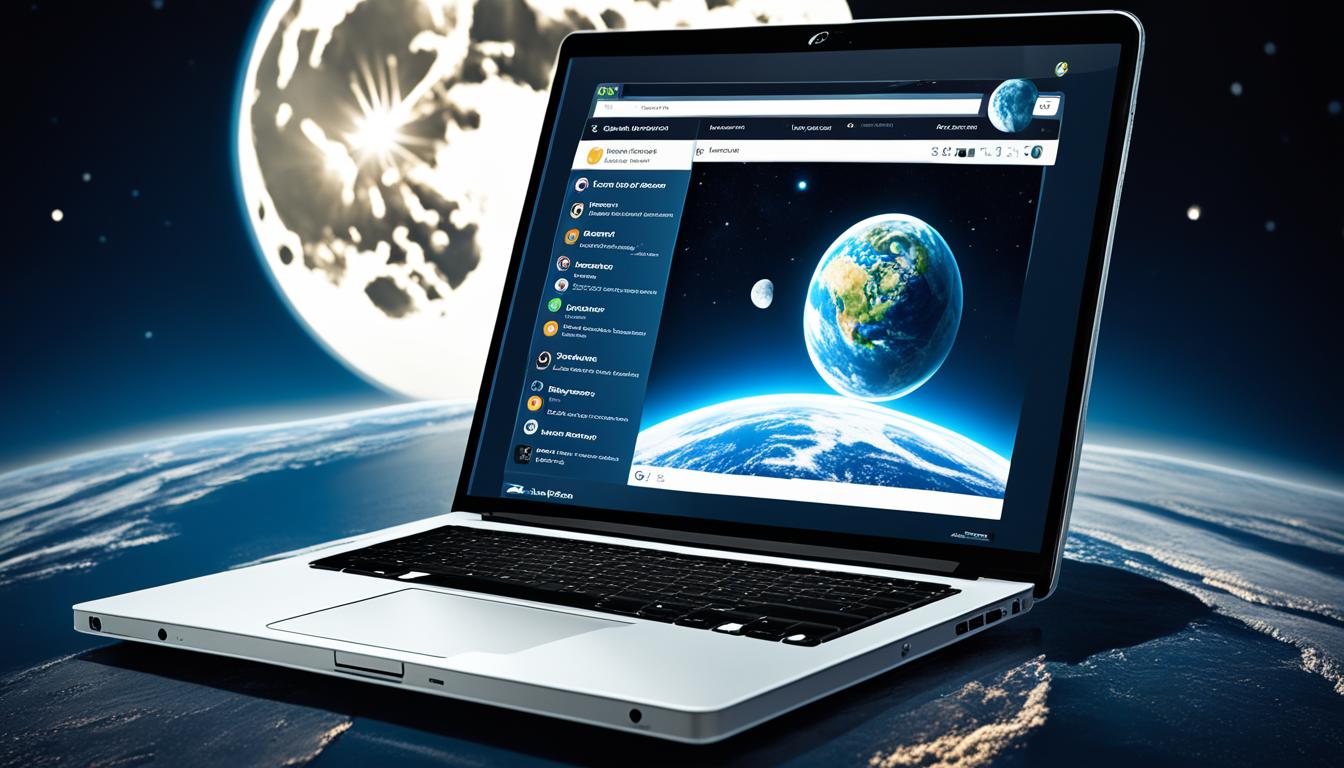
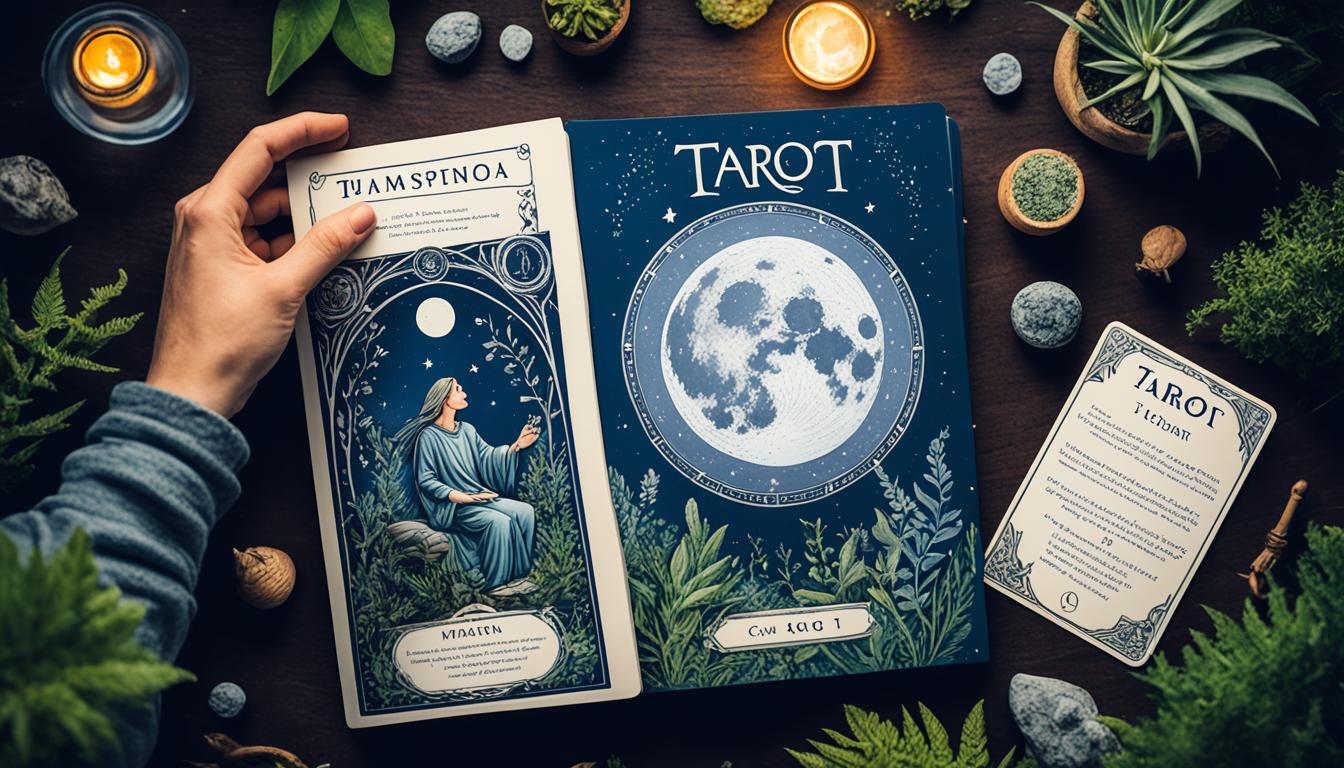
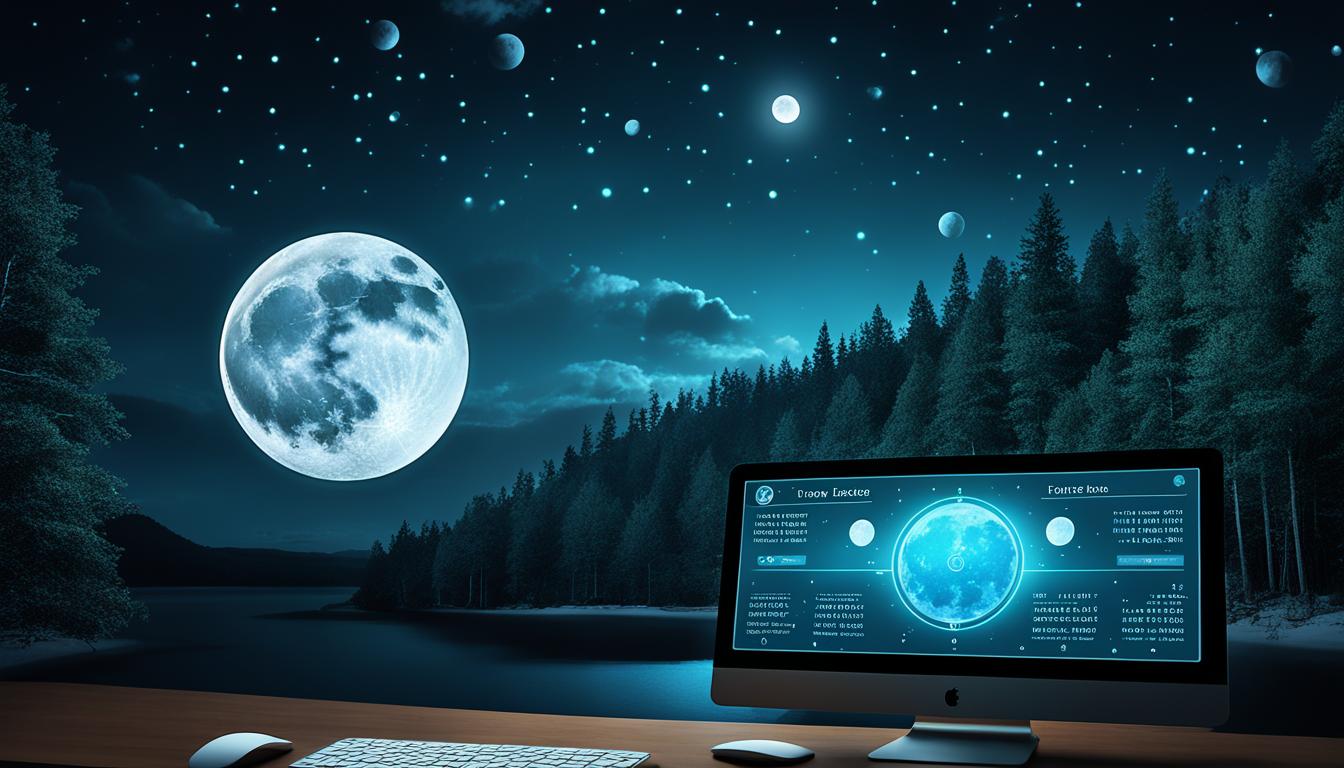



[…] journal can be incredibly helpful. Tracking energy levels throughout the different phases of the moon allows us to recognize…
[…] Reading is a new platform that offers personalized insights based on the lunar cycle1. It’s different from generic horoscopes,…
[…] As we set intentions aligned with the New Moon energy, we open ourselves to the power of manifestation. By…
[…] intentions during the new moon is a powerful practice that allows me to declare my goals and aspirations. It…
[…] These readings provide a convenient and accessible way to connect with the energies of the new moon and gain…